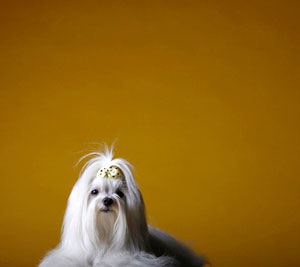
When I was young, whenever we passed a dog on the highway, my mother would squeal, “Look boys! There’s a stray!” Simultaneously slamming on the brakes, throwing the stick shift of our ’69 VW into reverse and with the smell of rubber hanging thick in the air, another rescue would be executed with the grace and speed of a pelican plucking an anchovy from the ocean. One of my brothers would invariably moan, ”Moommm, Dad is going to kill you!” But my dog-wrangling mother remained oblivious; hell-bent on saving the dogs that everybody else had forgotten. Growing up in New Mexico, my lessons in abandonment as well as my love for animals were learned early on. They grew tenfold every time I watched my mother, a desperate housewife on another one of her dog-saving missions, compassionately gripping her calloused hands around the neck of some random Shepherd/Chow mix who slobbered out his appreciation with a slew of wet kisses.
Dogs, it seemed, gravitated to my mother like bargain shoppers flocking to an after- holiday sale at Barney’s. The result was a household constantly providing shelter to any number of transient mutts. Humans and dogs are pack animals, and my mother ruled over her clan like a queen, quietly asserting her leadership with one silent, meaningful glance.
What is most interesting, though, is – without any formal type of training — none of the dogs of my childhood had any behavioral problems, no pooping in the house, no biting, no inappropriate chewing and no disobeying of commands. They all recognized my mother as pack leader and, miraculously, everything seemed to fall into place. Why were our dogs so well behaved? I’ve since come to the realization that country dogs are different than city dogs because they get out and do things. They chase rabbits, swim in rivers and visit their friends down the road. In other words, they’re allowed to be dogs, resulting, at the end of the day, in a tired dog and a tired dog is a well-behaved dog. The majority of problems encountered in city dogs find its roots in boredom and the lack of proper socialization. Even if you have a large backyard, to your dog it quickly becomes about as exciting as the classified section in the Des Moines Iowa Times. Dogs need to get out and exercise! It’s the way they get the neighborhood news. It’s their New York Times…the Sunday edition.
I am constantly in awe of dog-owners’ misconceptions about how their beloved animals entertain themselves when alone at home. When it comes to pets, the average caregiver is taking a long sail down the river we all know too well: Da Nile. Owning a dog isn’t solely for altruistic motives. Waking up 15 minutes earlier to start the day with a brisk walk with Fido will allow him to see what messages his friends have left for him along his route and allow you to start shedding some extra pounds. After all, what do you think your beloved does when you’re AWOL? Play dodge ball? Watch the WB? Chat on the phone? Shockingly, in an urban environment, dogs don’t entertain themselves. Left at home the dog idles away the hours waiting for you by sleeping, if you’re lucky, or chewing, if you’re not. Ah, there’s the rub, as this latter usually focuses upon your new Prada slippers! But, hey, don’t blame the dog! It’s the disappointment of that forgotten walk or game of catch you promised that is at the root of your dog’s issues.
Dog lover, that she was, my mother had her own personal bias when it came to mutts. Small dogs, the fancy breeds that bark incessantly and seem to require more attention than their larger counterparts, irritated the hell out of her. You know the culprits: Maltese, Yorkies, Poodles, Chihuahuas. They’re getting a bad rap these days and some deservingly
So why do they act this way? Usually it’s an indication of a lack of proper socialization. We have a tendency to coddle and over-protect our dogs because of our fears…not theirs. What happens when a big dog comes our way? We pick Fifi up and immediately cross the street, sending a clear signal to our pup that something must be wrong with big dogs. Not irrationally, they develop fear, which usually leads to “fear aggression.” Aggression leads to barking and often biting. Dogs don’t see the large size of another dog with danger…we do! The small ones need to be assimilated around “the big ones”. Fifi needs the confidence to walk up to another, sniff and say, “Hello, I’m a toy poodle and I don’t recognize your breed but you kind of look like a Rottweiler.” Simply put, your dog needs to be a social debutant, not a hermit.
Watching my crazy mother rescue dogs isn’t my only childhood memory. I learned to make a martini when I was 10, went to Catholic boarding school (and survived.), spent a few years in Roswell, New Mexico in the psychedelic ‘70s where my sister, Flower, was hatched and ended up in Los Angeles to pursue ubiquitous dreams that literally took me around the world. Thus far in my life I’ve “been there, done that” more than most, resulting in a person of a great amount of experience and confidence. This is what I want from your dog. To achieve this you must travel down the road of Obedience and early Socialization. Throw in some Nutrition and Exercise and not only do you have an acronym (NOSE) but you are also developing a happy, healthy, confident and obedient pup that will mature into your companion rather than “that darn dog”.
Zack Grey, founder of The Urban Pet, is a veterinarian-recommended professional dog trainer specializing in obedience and behavior. Respected in his native Hollywood as a motivational trainer with a dynamic personality, Zack possesses that unique quality – to be able to effectively communicate with both owners and dogs. He has brought peace of mind to scores of frustrated pet owners that even in the worst behavioral scenario there exists hope, help and humor.
